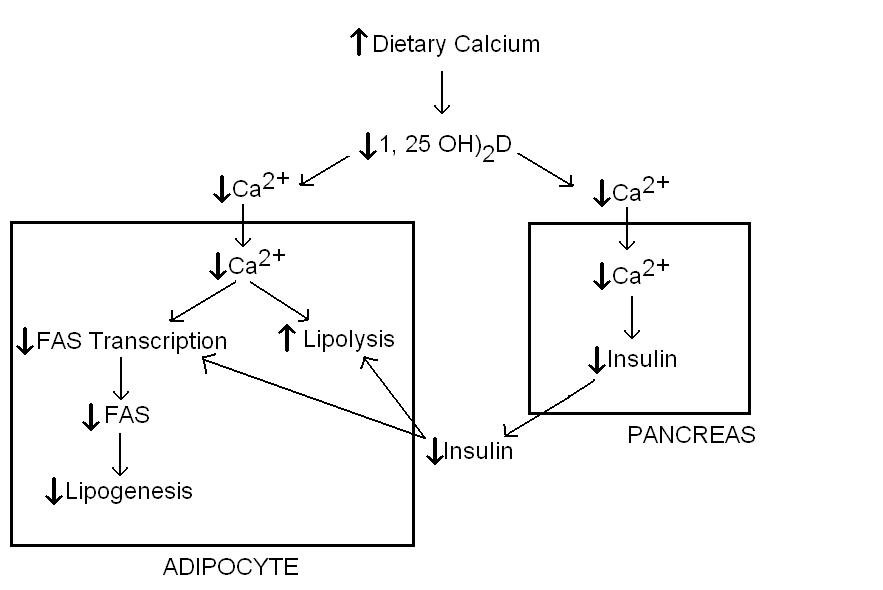Obesity is of importance because being over weight increases the chances of developing cardiovascular disease, cancer or diabetes. The exact causes of the growing epidemic in obesity are not fully understood, but clearly exercise and total calorie intake plays a major part in many cases. However, there are a myriad of other factors that are known to contribute in many ways to weight gain, and many of these factors are currently being investigated. One of the possible relationships that exists between weight gain and nutrients has been identified as that of calcium intake. Increased calcium intakes appear to show benefits in terms of a reduction in body weight, or more specifically fat mass, in both animal and human trials. Those with the highest calcium intakes appear to shown the lowest prevalence of obesity.
It has been suggested that calcium is able to promote weight loss because intracellular calcium plays an important role in adipocyte metabolism and is modulated by calitrophic hormones (1, 25-dihydroxy vitamin D and parathyroid hormone). Increases in dietary calcium can down regulate the production of the hormone 1, 25-dihydroxyvitamin D which in turn results in a decrease in the absorption of calcium to both adipocytes and pancreatic islet cells. In adipocytes, calcium is able to increase fatty acid synthase (FAS) transcription and inhibit lipolysis. Within pancreatic cells, intracellular calcium increases insulin release, which inhibits lipolysis and stimulates fatty acid synthase transcription. The result of low intracellular calcium would therefore be an increase in lipolysis (fat breakdown) and a reduction in lipogenesis (fat formation), thus producing an anti-obesity effect (figure 1).
 Figure 1. Mechanisms of calcium regulation of adiposity1
Figure 1. Mechanisms of calcium regulation of adiposity1
Calorie restrictive diets often exclude various sources of dairy products because they can contain high proportions of fat (e.g. cheese and milk). However, dairy foods tend to be a major source of calcium for large amounts of Western populations. In addition, weight loss diets by their nature tend to decrease mineral levels because the amount of food ingested is reduced and food choices restricted. Both of these factors may decrease calcium levels and therefore reduce lipolysis and increase lipogenesis. Animal models and human trials have demonstrated that higher intakes of calcium result in increased weight loss and reduced obesity, and so it is recommended that calcium levels are optimised for individuals who seek to lose weight. Calcium can interfere with the absorption and metabolism of other minerals, notably zinc and iron, and so additional care should be taken if increasing calcium levels through supplementation.
RdB
